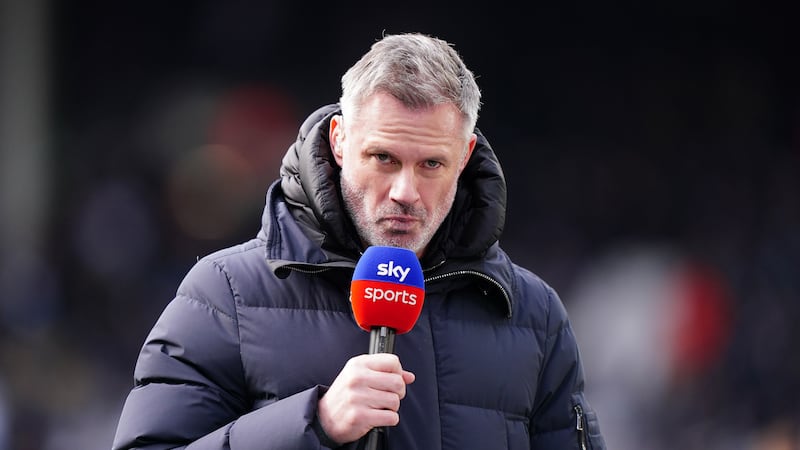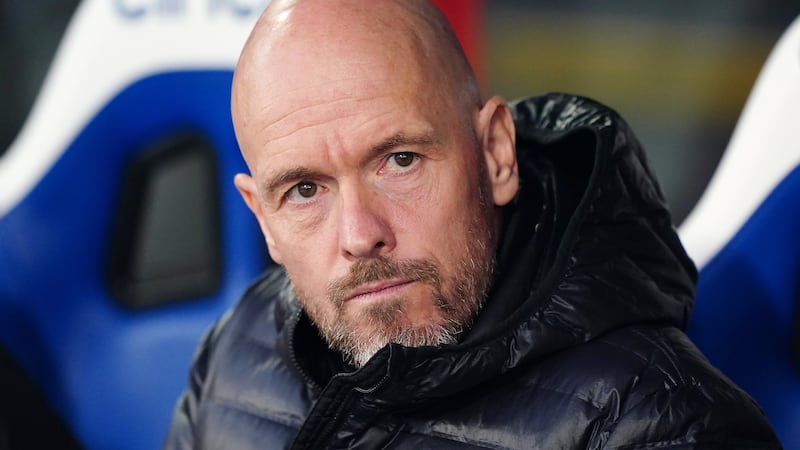JACK Charlton dismissed Northern Ireland’s 1994 World Cup qualification chances without even thinking about it.
The two Irelands were drawn in the same qualification group alongside Denmark, Spain, Lithuania, Latvia and Albania.
In an interview, Charlton reckoned it was a three-horse race for the two qualification spots – namely Republic of Ireland, Spain and Denmark.
While the Republic manager’s prediction turned out to be accurate, Billy Bingham wasn’t amused by the early dismissal of his Northern Ireland team.
In the first qualifier between the sides, in March 1993 at Lansdowne Road, the Republic cantered to a 3-0 win over Bingham’s side.
Read More:
- Kenny Archer: Sporting differences should not descend into rancour on this night in November
- NIall McGinn hoping to begin again against familiar foes in the Republic of Ireland
- Millwall's Shane Ferguson aiming to avoid slagging from club-mates after Irish derby
With the points banked, Republic fans chanted: ‘There’s only one team in Ireland.’
The north and south were in the same qualification group for Italia ’90 with Charlton’s men drawing 0-0 in Belfast in September 1989 before winning 3-0 at home the following year.
But qualification for USA ’94 was different.
With Bingham's men already out of the running for a place at the finals, the Republic’s fate would be decided in their last qualifier against their northern counterparts at Windsor Park on November 17.
Ever since the two Associations split in 1921, there has never been any love lost between the pair.
In the build-up, Bingham called the English-born players in the Republic team “mercenaries” (only four of Charlton’s starting XI were born in Ireland, while 10 of Bingham’s team hailed from the north).
1993 was one of the bloodiest years of the northern conflict. Twenty-six people were murdered in an 18-day period, including the Shankill and Greysteel massacres.
FIFA had safety concerns over the match being played in Belfast but after much deliberation the crucial qualifier got the go-ahead for Windsor Park.
On security advice, the FAI received match tickets for the players’ families and friends, and the Republic were advised to fly Dublin to Belfast rather than make the road journey for fear of their coach being attacked.

Only one anthem was played prior to the game – God Save the Queen.
What followed was 90 minutes of sectarian, racist vitriol from sections of the home crowd.
Paul McGrath and Terry Phelan were racially abused throughout and chants of ‘Trick or Treat’ – in reference to the Greysteel murders – rang out.
“Belfast ’93? That was a tough night,” remembers Republic striker Niall Quinn. “Trick or treat, that’s what the crowd was singing, which is what the gunmen had shouted when they walked into the [Rising Sun] bar in Greysteel and killed those poor people. That was a horrible night.”
In a scrappy encounter, Jimmy Quinn put Northern Ireland ahead in the second half before substitute Alan McLoughlin equalised for the visitors.
When McLoughlin's well directed effort hit the back of the net, Windsor Park fell silent.
McLoughlin’s goal was enough for the Republic to qualify for the World Cup finals, thanks in no small part to the Spanish who defeated Denmark 1-0 to pave the way for Charlton’s team.
Charlton and Bingham always had a cordial relationship but everything was soured by that night in November.
In his 2016 authorised biography, written by Colin Young, Charlton tells the story of making his way over to Bingham at the final whistle to shake hands.
“Instead, in a moment I still find difficult to understand,” says Charlton, “I pointed a finger at him and blurted out: ‘Up yours too, Billy’” – in retaliation to what Jimmy Nicholl, Bingham’s assistant, said to the Republic dug-out after Quinn had put the north ahead.
“He just looked at me and turned away, dumbfounded," Charlton said.
"And I realised I had gaffed, yet again. Afterwards I made it my business to seek him out, barging in on his press conference with the remark, intended to be jocular: ‘It’s all right, Billy. I’ve not come to flatten you.’
“And Billy, competitive to the last, says: ‘It’s okay Jack, you wouldn’t be able to manage it anyway.”
It was Bingham’s last match in charge of Northern Ireland.
Twenty-five years on from that horrible night in Belfast, the Republic of Ireland and Northern Ireland have played each other just four times – twice in the Euro ’96 qualifiers and in two friendlies (May ’99 and May 2011, both in Dublin).
There was also a behind-closed-doors training game in 2015.

The mood music wasn’t great for Northern Ireland's 2011 trip to the Irish capital for a Carling Nations Cup clash that they lost 5-0.
Frustrated by the constant trickle of northern-born players declaring for the south, the IFA brought a case to the court of arbitration for sport.
Darron Gibson and Marc Wilson had switched allegiances to the south while Shane Duffy, with Everton at the time, also declared for the Republic despite having played for Northern Ireland at U21 level and been called up for senior duty.
Much to their chagrin, the IFA lost their court challenge as it was impossible to navigate a way around the right of Irish citizenship for the people of the north enshrined in the historic Good Friday Agreement.
Northern Ireland manager Michael O’Neill has protested louder than any of his predecessors about the amount of underage northern players declaring for the south in recent years.
And he has a strong ally in former Republic of Ireland manager Brian Kerr who maintains the FAI’s search for northern players has been too aggressive.
During his successful period managing Ireland’s underage teams, Kerr noted he was “never busy in terms of selecting players from outside”.
In 2011, Kerr told The Irish News: "We did, in fact, tell some players that they would be better off not playing for us because they were unlikely to get to the top level. So I think that was only fair.”
“I know some of the northern players have an identity with the Republic because of the communities they're living in. I think over time that can change.
“But I don't think the Republic should be taking advantage of the Belfast Agreement to the extent they're using it in football as a way of recruiting players.
“I've always been someone who's fought for the small man and tried to see things in a fair-minded way.”
Kerr, though, probably under-estimates the emotional pull young northern Catholic players have towards the Republic.
It’s not solely about playing on the international stage.
These same players are perhaps not as passive in the declaration process as some would like to imagine.
For example, Rory Hale, who was on Aston Villa’s books, had played underage football for Northern Ireland.
Two years ago, he contacted the FAI about switching allegiances.
“I made this decision myself. I grew up in north Belfast, I’m Irish, my family is Irish and I want to play for Ireland,” Hale said.
Of course, for every Rory Hale there is a Bobby Burns who has flourished for Northern Ireland’s underage teams.
The former St Malachy’s College student, on Hearts’ books, has just been promoted to the Northern Ireland senior team for tomorrow night’s international friendly in Dublin.
It is understood the IFA’s Club NI elite programme has a religious demographic of 60-40 in favour of Catholics.
Quite a number of people inside the IFA, however, see the playing of 'God Save The Queen' as a major stumbling block in recruiting and holding onto players from Catholic/nationalist backgrounds, while the northern association is undoubtedly hamstrung by the lack of power-sharing enthusiasm within political unionism.
As a consequence, an all-embracing Northern Irish identity has never really got off first base.
You only have to attend Republic of Ireland games to hear every third accent is of northern origin.
The fact that the 'Long Kesh/Maze' stadium proposal was rejected dealt another blow to the lofty ideal of a 'new beginning' for Northern Ireland's international team.
No-one can deny Michael O’Neill’s passion for the Northern Ireland job and it’s easy to understand his frustration at the talent drain.
But some things are beyond his control.
Ahead of tomorrow’s friendly in Dublin, he joked at the swiftness with which Hearts defender Jimmy Dunne had been promoted to the Republic of Ireland senior team after just 15 minutes of game-time with the U21s.
The Drogheda-born Dunne is eligible through his parentage to play for the north and Michael O’Neill spoke to him about the prospect.
Rather than describe the FAI as “morally poor” – as he did last year - for the way in which the south are perceived to be going about recruiting northern players, O’Neill was slightly more phlegmatic about the situation and clearly hasn’t lost any of his dry wit in the process.
On Dunne’s decision to declare for the Republic, the Ballymena man said: “To be called up after 15 minutes of U21 football, he must have been very good in those 15 minutes. I'm delighted for the boy.”
The FAI and IFA might have joined forces to bid to stage the 2023 U21 European Championships on an All-Ireland basis - but, whatever you do, don't mention the war.
For it still rages under the surface.








